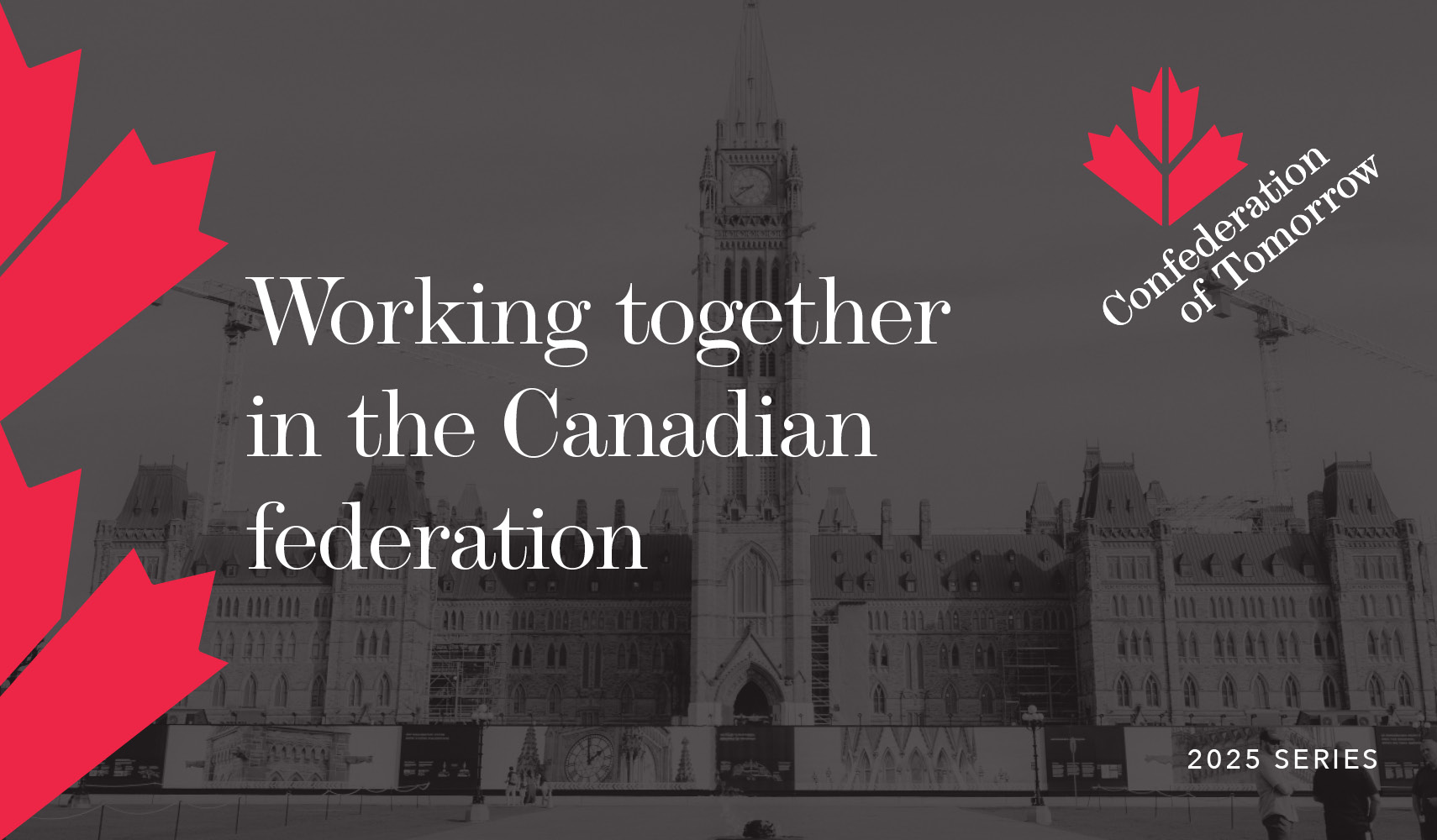Working together in the Canadian federation

Working together in the Canadian federation
Two main political events since the start of this year have affected the context in which the relations between governments in Canada are evolving. First, the imposition of U.S. tariffs, combined with the American president’s threats against Canada’s independence, have created a new sense of urgency. Second, the change of prime minister following the resignation of Justin Trudeau and the selection of Mark Carney as his successor, has led to a shift of both policy and leadership style at the federal level.
How have these events affected the public’s perception of the state of intergovernmental relations in the country? The latest survey finds that these events have been followed by a significant improvement in the public’s sense of how well their governments are working together. At the same time, after three consecutive years of increases, the proportion trusting neither the federal nor their provincial government to make the right decision in several key policy areas has fallen.
Key findings
- Just over one in two (51%) now say that the federal and provincial governments are working very or somewhat well together – an increase of 12 percentage points since 2024. The proportion that says they are not working well together has fallen to 42 percent, a drop of 12 points.
- The improvement in the public’s assessment of the state of intergovernmental relations has occurred in every region of the country (with the exception of the North, where opinions were much more positive and have remained so).
- Among individual provinces, the improvement since 2024 is most notable in Saskatchewan, where the proportion saying that the federal and provincial governments are working well together more than doubled.
- Despite this improvement, the proportion saying that the federal and provincial governments are not working well together still outweighs the proportion that says they are in three provinces: Quebec, Saskatchewan and Alberta.
- In the three provinces where the proportion saying that governments are not working well together is higher than average – Saskatchewan, Quebec, and Alberta – opinions are more negative overall only because of the more negative views of their older residents.
- Across the Prairies, supporters of the provincial conservative parties (UCP, Saskatchewan Party or the Manitoba PCs) are much more likely to give a negative assessment to intergovernmental relations than a positive one. This is not the case for the supporters of the Ontario PC Party, who are more likely to view relations positively than negatively.
- A plurality of Canadians trusts the federal government more to manage trade relations with other countries. The proportion trusting the federal government more in this area is higher than in the other four areas covered in the survey. In this area, there is relatively little variation in opinions across regions.
- After three consecutive years of increases, there has been a drop in the proportion trusting neither the federal nor their provincial government to deal with other key issues such as health care, climate change, immigration or the economy.
- The proportion of Indigenous Peoples trusting their Indigenous health organizationmore to manage the health care system is up slightly since2024.
- Since 2024, the proportion trusting neither government to address climate change has fallen by eight percentage points. This change follows the removal of the federal consumer carbon tax following the change of prime minister earlier this year.
- In Canada outside of Quebec, the proportion trusting neither government to manage immigration and refugee settlement has declined by nine points.
About the survey:
The Confederation of Tomorrow surveys give voice to Canadians about the major issues shaping the future of the federation and their political communities. They are conducted annually by an association of the country’s leading public policy and socio-economic research organizations: the Environics Institute for Survey Research, the Centre of Excellence on the Canadian Federation, the Canada West Foundation, the Centre D’Analyse Politique – Constitution et Fédéralisme, the Brian Mulroney Institute of Government and the First Nations Financial Management Board.
The 2025 study consists of a survey of 5,391 adults, conducted between May 1 and June 16, 2025 (92% of the responses were collected between May 6 and May 29); 90% of the responses were collected online. The remaining responses were collected by telephone (both landline and cell phone) from respondents living in the North or on First Nations reserves, or from francophone respondents in New Brunswick.
This version of the report includes minor corrections made on August 29, 2025 as a result of small adjustments to the survey weights.
For more information, contact Dr. Andrew Parkin or the Environics Institute.
This project benefits from the financial support of the Research Support Program of the Secrétariat du Québec aux relations canadiennes (SQRC) / Ce projet bénéficie de l’appui financier du Programme d’appui à la recherche du Secrétariat du Québec aux relations canadiennes (SQRC).

Survey materials
Final report: Working Together in the Canadian Federation
La collaboration dans la fédération canadienne - principaux constats
Survey tables
Note: the Confederation of Tomorrow uses separate weighting factors for the overall results, the results for residents of the three territories (the North), and for Indigenous Peoples. When reporting results for the territories (individually or as a region) or for Indigenous Peoples, please use the corresponding separate tables.
- Main data tables for questions covered in this report
- Data tables: results for the North
- Data tables: results for Indigenous Peoples
Like what you're reading? With our bi-monthly e-newsletter, you can receive even more with the latest details on current projects, news, and events at the institute.
Subscribe